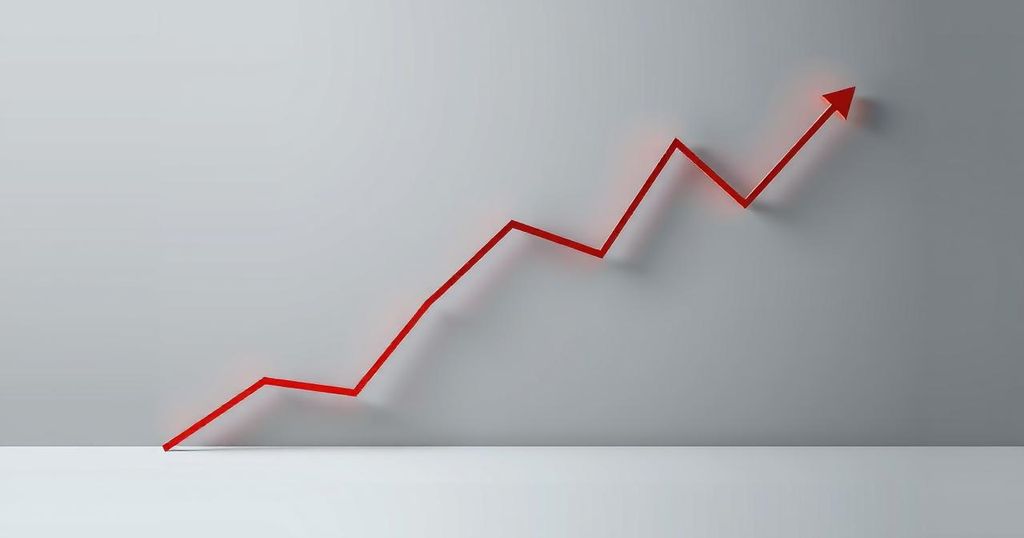Stock markets declined due to fears about Trump’s trade policies and potential economic downturns in the U.S. and China. Investor uncertainty was compounded by tariff threats and political unrest in Europe. Key indexes, including the Nasdaq and Dow, reported losses amidst declining consumer confidence.
On Monday, stock markets declined as apprehensions rose concerning the repercussions of President Donald Trump’s trade policies on the economic growth of the United States and China, the world’s foremost economies. Wall Street’s primary indexes commenced the day in negative territory, with the Nasdaq falling by two percent. Trump, when asked about a potential recession in 2025, remarked, “I hate to predict things like that” and stated that the current situation is a transitional phase aimed at reviving wealth in America.
Trump’s inconsistent tariff threats against nations such as Canada, Mexico, and China have contributed to volatility in U.S. financial markets, leading to consumer uncertainty regarding future economic conditions. Susannah Streeter from Hargreaves Lansdown commented, “Unease about the effect of Trump’s tariffs hangs over financial markets at the start of the week,” highlighting concerns of recession, declining consumer confidence, and increasing trade complexities affecting investor sentiment.
European stock markets, specifically in London, Paris, and Frankfurt, also experienced declines amid concerns regarding Germany’s political landscape. David Morrison, a senior market analyst, noted that risk sentiment has soured due to President Trump’s tariff decisions and a cloudy U.S. economic outlook. He described Trump’s approach as a “scatter-gun” strategy, making it challenging for investors to gauge potential impacts.
On the global front, the European Union expressed that the Trump administration seems disinterested in reaching a trade agreement to prevent tariffs against the bloc. Following the imposition of 20-percent tariffs on certain Chinese products, Beijing has responded with retaliatory duties on U.S. agricultural goods. Research director Kathleen Brooks commented that Germany’s political shifts may stymie significant spending plans aimed at revitalizing the economy.
Trading data revealed consumer prices in China fell by 0.7 percent in February, marking the first drop in over a year, further indicating deflationary pressures in the economy. While Tokyo’s markets finished higher, Hong Kong and Shanghai reported losses. Key marketplace positions around GMT 1335 included declines for the Dow, S&P 500, and Nasdaq, while certain currency pairs exhibited minor fluctuations.
The prevailing economic tension reflected deep-rooted concerns relating to trade relations, future growth, and consumer confidence across major global markets. The collaboration of political uncertainties and trade policy decisions is casting shadows over the short-term market outlook, causing widespread investor apprehension.
In summary, the recent decline in stock markets is primarily attributed to fears surrounding President Trump’s trade policies and their likely impact on the economies of the U.S. and China. Investor sentiment has shifted negatively, influenced by tariff uncertainties and declining consumer confidence. Additionally, developments within European political dynamics have further complicated the investment landscape, reinforcing the need for cautious market assessment moving forward.
Original Source: homenewshere.com






